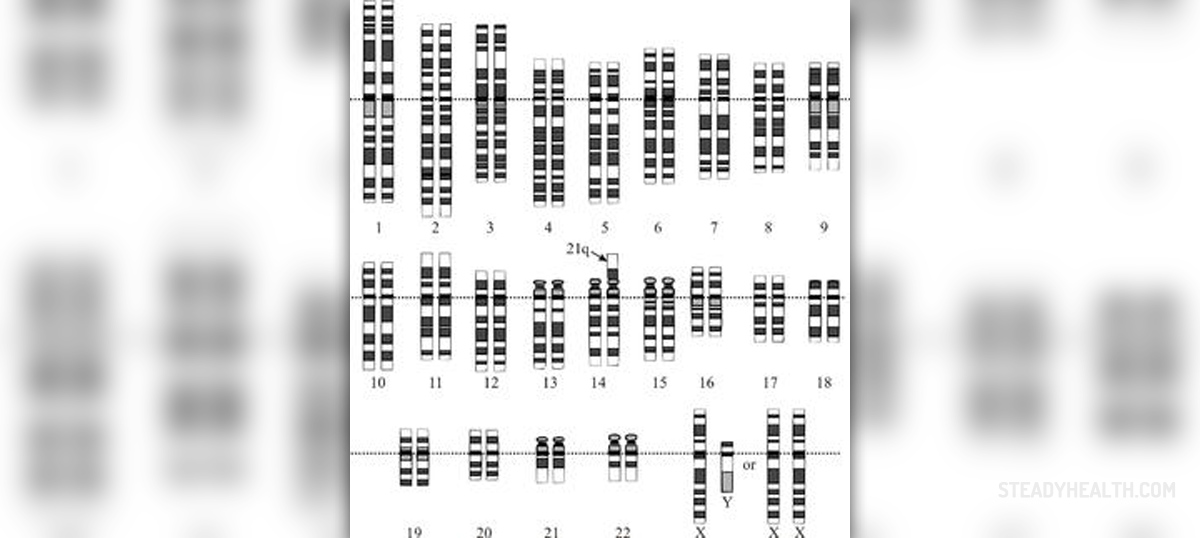
Down syndrome is a medical condition that occurs when a child has an extra chromosome. Normally, children receive 46 chromosomes from their parents. 23 chromosomes are coming from mother, and the other half of them comes from the father. In some rare cases, a child is born with an extra chromosome, which causes a wide array of health and developmental problems. According to the official statistics, Down syndrome is diagnosed at one per 733 births. This condition typically occurs with older parents, because of the increased mutagenic exposures upon their reproductive cells. Signs and symptoms of this disease may vary from patient to patient, but in many cases people with Down syndrome share certain features such as a flat facial profile, a large space between the first and second toes, small ears, an upward slant to the eyes, and a protruding tongue.
Down syndrome symptoms in newborn
When a baby is born with Down syndrome, it usually has a normal birth weight. However, these children will soon start showing some of the developmental impairments. Newborns with Down syndrome grow at a slower pace than their peers grow, and normally appear to be smaller in comparison to other children of same age. Children with Down syndrome will later reach important developmental milestones such as sitting up, crawling and walking. In many cases, these kids will have problems with feeding; they will be unable to suck milk and may have various digestive problems and constipation. A baby with Down syndrome usually appears a bit limp or floppy, since it has a very low muscle tone. Other problems such as ear and eye impairments, dental problems, problems with neck and thyroid levels, are also common. More than half of the little patients are born with a congenital heart failure. Often these children suffer from additional health problems such as leukemia and diabetes.
Prevention of Down syndrome
Down syndrome is a serious medical concern but there is one good thing about this disease – it can be easily prevented. There is no cure for Down syndrome, but a simple test during the pregnancy may show if there is a risk of delivering baby with Down syndrome. To prevent this disease, women should understand that having a birth after age 35 significantly increases the chance of delivering babies with Down syndrome. Whatever is the case, early diagnosis and intervention may help little patients to live healthier and full lives, by preventing various health complications associated with this disease.

















Your thoughts on this
Loading...